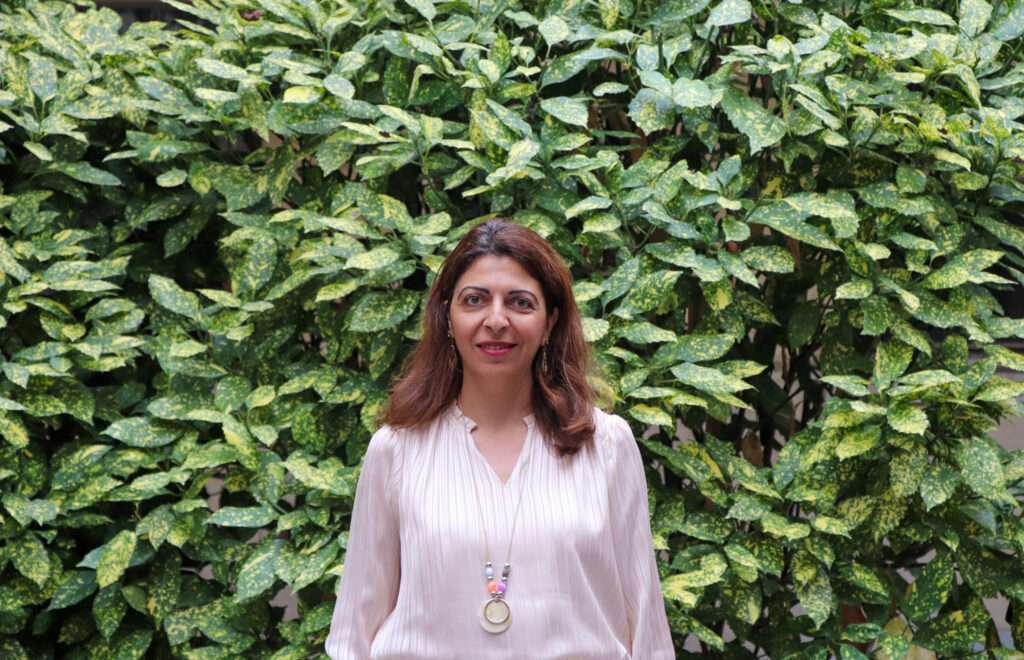Ramia Al Bakain
Ramia Al Bakain is Professor at the University of Jordan in Amman (Jordan). Her fellowship at the Montpellier Advanced Knowledge Institute on Transitions runs from 1 September 2023 to 30 June 2024.

Biography:
Ramia Al Bakain received her Ph.D. in Analytical and Bioanalytical Chemistry from La Sorbonne Université Pierre et Marie Curie in Paris, France. She is currently a professor at the University of Jordan in Amman, specialising in the application of analytical chemistry to sustainability.
Ramia Al Bakain’s research focuses on green solutions for water, agriculture and food security, including green methods for water treatment and sustainable resource use. She collaborates internationally with institutions in the USA, France, Lebanon, Austria, Italy and the UK, and leads interdisciplinary teams focusing on water-food-agriculture security in the Mediterranean and MENA regions.
Ramia Al Bakain has received numerous awards and fellowships, including the L’Oréal-UNESCO Award for Women in Science, the Fulbright Award, the IUPAC Award for Periodic Table of Young Chemist, the International Scientific Excellence Award-Lebanon, the Chaire Joliot Fellowship, the DFG Fellowship, and the TWAS Prize for Young Scientists in Developing Countries. Her commitment to sustainable chemistry continues to shape innovative practices in her field.
Research interests :
- Aquifer recharge;
- Analytical development;
- SDGs 2030;
- Agriculture & food security;
- Pilot implementation
Project: Developing new and efficient analytical method for wastewater treatment. Applications to aquifer recharge
The problem associated with the lack of water is a great worldwide concern since the number of populations increases while the water resources are limited. The lack of water has severe impacts on domestic needs, agricultural sector and food production. The alternative solution for water shortage is to treat the wastewater and re-use it again. Therefore, developing an efficient, fast, green, low cost and sustainable methods for analyzing, detecting, and filtrating the pollutants exist in the wastewater is needed. Therefore, this project aims at supplying the groundwater recharge system with high quality treated wastewater. As an application or the outcomes of this project, an artificial aquifer recharge site of long-term will be set up in the town of Claira (France).
Why a fellowship in Montpellier?
During my stay in Montpellier, I would like to:
- Build a long-term network by writing EU and international projects that will lead to student and staff exchanges.
- Create a partnership with the university of Montpellier and the university of Jordan such as a joint postgraduate supervision programme.
- Organise workshops and trainings (virtual and in person) with other colleagues from Montpellier’s scientific community.
Ramia is hosted by the Hydrosciences research unit.
Recent publications on Ramia’s ORCID profile include:
- Al Bakain, R., Al-Degs, Y.S., Cizdziel, J.V., Elsohly, M.A., 2020. Comprehensive classification of USA cannabis samples based on chemical profiles of major cannabinoids and terpenoids. Journal of Liquid Chromatography & Related Technologies 43, 172–184. https://doi.org/10.1080/10826076.2019.1701015
- Zakaria, A., Al Bakain, R., Rasheed, M., El-Hoz, M., 2022. Assessment and geographical prediction of sediments origin based on hydrocarbons content: application to the Gulf of Aqaba and Port of Tripoli. International Journal of Environmental Analytical Chemistry 1–19. https://doi.org/10.1080/03067319.2022.2104640